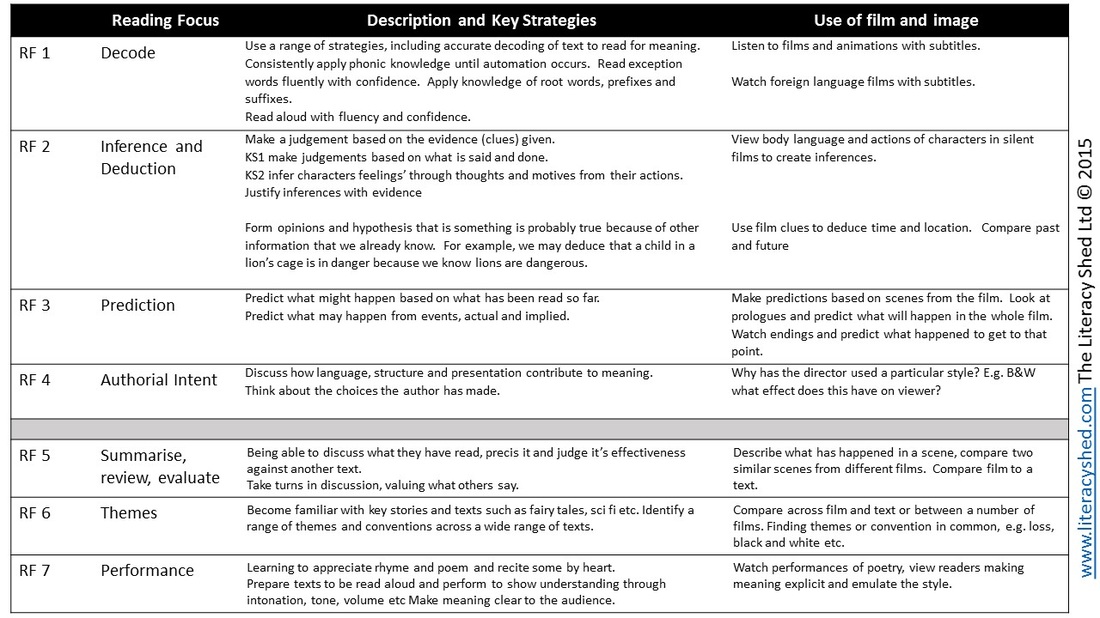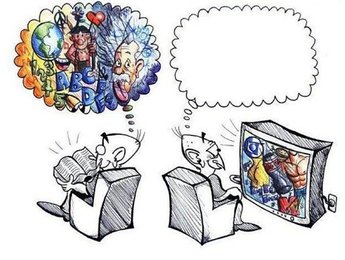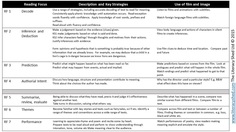|
For the love of facts: There is nothing wrong with the KS2 Spag test.
(That is what some people say!) Not me! There is something fundamentally wrong with this test. It is testing knowledge that children have not had time to learn. It is assuming that children leaving Y6 have had a rigorous and thorough grammar education, which is supplied by the government in the form of a GaPS curriculum. However, herein lies the problem for the children taking these tests in May. They will not have had 2 years of learning from this new curriculum because it hasn’t been out that long, and the tests are taken in May cutting a further 20% of the learning time in Y6. I have recently read arguments on prominent blogs and on twitter that suggest grammar teaching does not have to be dull and boring, that learning grammar will not turn children off learning English and that just because the children have to learn to label the language terms (in order to pass a test) this doesn’t mean that they won’t enjoy learning them because ultimately children like to learn. I agree with the fact it doesn’t have to be dull and boring. However, with the rushed implementation of the tests comes a range of implications.
So that is the problem - what is the solution?
I am not against the testing of children and I am not against the GaPS test per se. What I am against is the children currently in UKS2 being tested on it. That and the fact that this measurement is then used to judge teachers. In previous schools I have been given targets based on the outcomes of children at the end of the year. Basically I was given the number of children who were expected to pass the range of tests at the end of each year group at age related expectations or above. I was told that these targets would be used as part of our staff performance management and that this could adversely affect our pay, either by halting a rise up the pay scale or leading to a reduction in pay for those staff on UPS who did not meet the targets. This may not sound too bad; you may think that teachers who are not getting children to reach their potential don’t deserve to travel up the pay scale. A teacher who does not do their damnedest to teach their children meet their potential is a rare teacher indeed. Further worry is caused by schools using ‘aspirational’ targets. Targets set by SLT who decide where it would be ‘nice’ to get to and often these are unachievable targets for some pupils. This has huge implications too. More drilling, more cramming, more missing ‘lesser’ parts of the curriculum in order to bash the targets. For me the solution is easy. Implement a rolling programme for the new testing regime. Introduce the new curriculum but test pupils in two years’ time when they have had time to learn the content in an interesting and engaging way: a way which is not superficial and decontextualized. Test the pupils when they have had opportunity to embed the new curriculum in their learning and use it in a range of contexts ensuring that they are secure in their use and application. Test pupils when their understanding of grammar is deeper than surface level and they are able to retain and use their knowledge more than to simply select the correct multiple choice answer in a test booklet. As always I am happy for you to point out errors and I look forward to reading your comments. Rob
47 Comments
This is the 4th blog about reading, a continuation of the previous two. Exploring the new reading curriculum (England) through film. To go back and read them from the start click here Film is a very useful tool which can allow children to 'read' beyond the literal. Children who may find decoding difficult can often see things in films on a different level. Allowing them to develop their inference and deduction skills amongst others. This blog will demonstrate how film can support the teaching of reading through books, it is important here that this process is not a replacement for reading and sharing high quality texts. At Literacy Shed we have decided on a number of reading foci based upon the new curriculum. To read about RF1 - RF 3 visit our first blog here.
RF4: Authorial IntentHere the author's intent and the directors intent are the same thing. Film makers call the things that you seen in the frame 'Mise - en - scene' everything places in the frame is done so on purpose. Each object, costume choice, setting, colour choice etc has a meaning. You can use any film to study authorial intent. Asking questions such as: "Why has the director placed a candlestick on this table?" "Why is the light flickering in the room overhead?" Each of these would be done for a purpose. Perhaps the candlestick shows the scene is set in the past, the flickering light may show that the setting is run down and this may add to the tension of the scene.
The director/author chooses to not reveal who is at the door. He shows two shadows at the door. Why not show who it is? It builds then tension. It leaves the audience wondering who it is. The further shadows heighten the tension, especially when we see the silhouette of the gun outlined on the kitchen window. RF5: Summarise, review and evaluateMost teachers know the story of The BFG and now we have the film version to look forward to. I like to show the two openings from the films above. The BFG Teaser trailer and The Dreamgiver. Each have very similar openings. Pupils can evaluate the scenes against the opening of the original Roald Dahl text. They can discuss which they prefer and why. Asking questions such as: Which one is most effective? What is similar or different? Which of them makes you want to see what happens next? Summarising is a useful skill in reading and when viewing films, asking children to retell the story through the main events. Write the plot as bullet points or even sum it up in 140 characters tweet style. RF6: Themes
Exploring a number of texts across a theme allows pupils to understand events and characters to a greater depth. The Literacy Shed site is perfect for this as the sheds are broadly thematic. Here you can see four films which all deal with war and loss. They can all be found in The War and Peace Shed. Children can compare how characters deal with the loss of somebody. We can compare the difference in The Piano, when the soldier loses a friend to the loss of the soldier in 'Germans in the Woods' when the man kills an enemy. Interestingly, both films provoke a discussion about guilt from the children, who decide both men feel guilty, either directly or indirectly. Themes can be based on genre and character or on things like colour used, setting, period. RF7: PerformancePerformance has been given an elevated position in the new curriculum. Sharing performances by professional poets and actors allow children to study the rhythm, rhyme and actions. It allows non-readers to join in with what is being said too. As a teacher I know Mr Rosen here does a better job of performing this poem than I ever would! As always I welcome your comments. This is the 3rd in a series of blog about reading. I strongly believe that the use of film can improve reading skills. It breaks down some of the barriers to reading. The three main barriers, shown in the previous blog here, are; confidence, motivation and ability. Film attacks these barriers in a number of ways. It overcomes the problem of motivation because films are often more engaging to many children than books, there are a plethora of reasons why this may or may not be the case. Almost all children have a wide experience of film and TV, they become 'experts' in following plot, analysing characters and predicting events, often unconsciously. This expertise allows them to answer questions about film confidently. Film is accessible to all students regardless of ability, even children who are unable to decode are able to view films and form ideas and hypotheses about them. I am not advocating that film be used instead of books to teach children to read, but for the reasons described above I think that they are a very useful tool for teachers.
Books are wonderful learning tools but are inaccessible to some children. The UKLA report that one in ten children: do not have any book to call their own; have never been to a library; have never visited a book shop by the time they leave KS2. Below are some ideas for using film in the classroom to practice reading skills. The reading skills are taken from The Literacy Shed Reading Skills grid which can be downloaded by clicking the image. RF1: DecodeThere is no real substitute for reading texts to teach decoding, using a step by step phonics programme and for older students who may be low ability use of reading interventions. However, film can allow younger children to develop a wider vocabulary, so that new words are not always unfamiliar. Film with subtitles allows children to practice their reading skills, it also encourages reluctant readers to read. If for example, a foreign language film is used children will have to read the subtitles in order to understand plot and dialogue. This example is from 'Replay' which can be found on Literacy Shed here.
RF2: Inference and DeductionInference is the skill of reading the text for clues and forming a judgement. KS1 make judgements based on what is said and done. KS2 infer characters feelings’ through thoughts and motives from their actions. Children justify inferences with evidence from the text. Children who are poor decoders focus so much on the decoding that the meaning of what they are reading can become lost. Poorer readers find it difficult to read beyond the literal. Film takes away the barrier of decoding and allows children to focus on the body language. If you ask children 'How does the Lighthouse Keeper feel about his neighbours after watching this clip. Most children offer answers such as: he is annoyed with them, he doesn't like them, he thinks they are noisy, he is jealous that they are all having a good time. When we ask the children to justify their answers they talk about him 'muttering under his breath' about them and slamming the window, either in frustration or to keep the noise out. Children can use their deduction skills to deduce that the Lighthouse Keeper is lonely. They use the prior knowledge of light house keepers along with this clip to deduce that he lives by himself, he is jealous of his neighbours and slams the window out of frustration. RF3: PredictionMake predictions based on scenes from the film. Look at prologues and predict what will happen in the whole film. Watch endings and predict what happened to get to that point. Watch events and discuss how these events will affect the plot.
At the point when he begins to crack the eggs, the children can predict what comes out. There are other points in the film which are great for prediction too. The Next one.... Click here to view part 2The next blog will look at the following:
|
Archives
July 2020
Categories
All
|



 RSS Feed
RSS Feed
